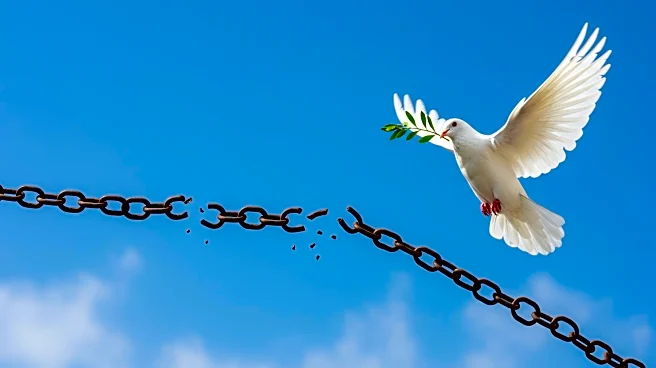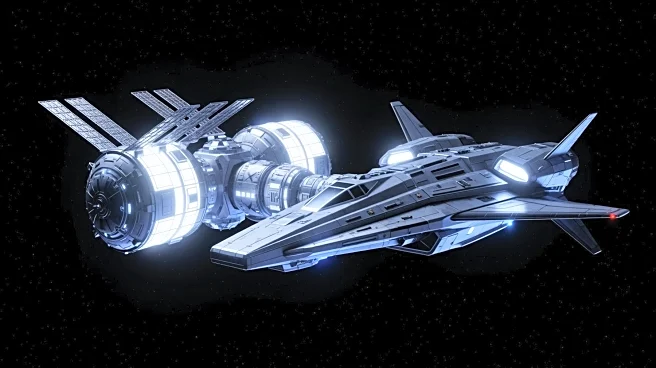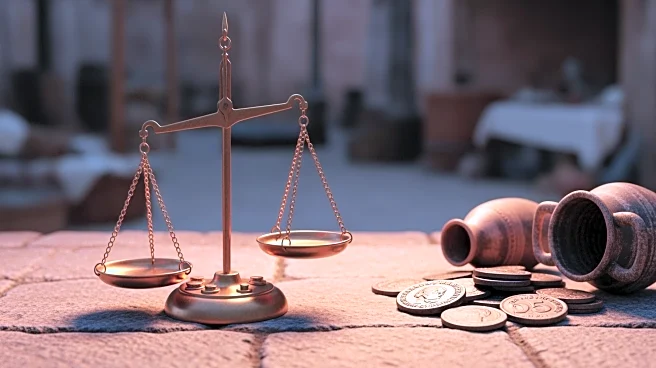What's Happening?
In Israel, tens of thousands of protestors have taken to the streets demanding a ceasefire and the release of hostages held in Gaza. The demonstrations, organized by groups representing families of hostages, are among the largest seen in the 22-month conflict. Protestors are expressing frustration over the Israeli government's plans for a new military offensive in Gaza, fearing it could further endanger the hostages. Currently, 20 of the 50 hostages are believed to be alive. Demonstrations occurred at various locations, including outside politicians' homes and military headquarters, with protestors blocking roads and lighting bonfires. Israeli police have arrested 38 individuals in connection with the protests. Former Israeli army and intelligence chiefs have joined the call for a deal to end the fighting, emphasizing the need for a comprehensive agreement to secure the hostages' release.
Why It's Important?
The protests highlight growing public discontent in Israel over the government's handling of the Gaza conflict, particularly concerning the safety of hostages. The situation poses a significant challenge for Prime Minister Benjamin Netanyahu, who faces pressure from both protestors and members of his coalition. The protests could influence Israeli policy, potentially leading to negotiations for a ceasefire and hostage release. The conflict has already resulted in significant casualties and humanitarian issues in Gaza, with over 61,900 reported deaths and widespread displacement. The demonstrations reflect broader concerns about the humanitarian impact of the war and the need for a resolution that prioritizes civilian safety.
What's Next?
The Israeli government may face increased pressure to negotiate a ceasefire and secure the release of hostages. Prime Minister Netanyahu's stance against a deal that leaves Hamas in power could lead to further political tensions within his coalition. The potential call-up of thousands of reservists for a new offensive in Gaza is another concern for Israelis. International attention on the humanitarian crisis in Gaza may also influence diplomatic efforts to resolve the conflict. The situation remains fluid, with the possibility of further protests and political developments in the coming weeks.
Beyond the Headlines
The protests in Israel reflect deeper ethical and humanitarian concerns about the ongoing conflict in Gaza. The images of malnourished Palestinian children at demonstrations indicate a shift in public sentiment, with increasing awareness of the humanitarian crisis faced by civilians in Gaza. The conflict raises questions about the balance between military objectives and civilian safety, as well as the long-term implications for peace and stability in the region. The situation underscores the need for a comprehensive approach to conflict resolution that addresses both security and humanitarian needs.








